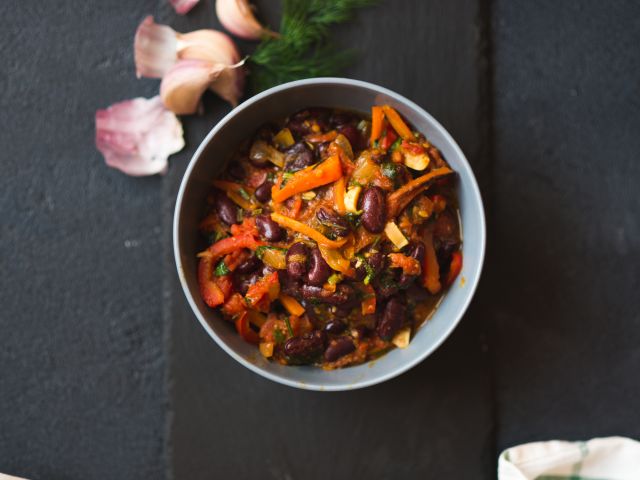Updated on September 24, 2024.
When the mercury dips, what’s more comforting than a big bowl of chili? And when you go with an all-bean, veggie chili, you not only warm your insides, but you may also be supporting the health of your kidneys.
Why? Because all beans means no meat, and animal protein can be hard on kidneys.
Multiple studies have linked higher meat consumption to renal cell carcinoma, the most common kidney cancer. And a growing amount of evidence suggests that eating meat could contribute to chronic kidney disease. This type of protein appears to be especially problematic in people who already have weakened kidneys.
On the other hand, the lycopene in your chili’s cooked tomatoes may be protective when it comes to kidney cancer.
Kidney issues are on the rise
Chronic kidney disease (CKD) means your kidneys don’t filter your blood as effectively. Although at first it doesn’t have symptoms, over time, CKD can result in the need for dialysis or a kidney transplant. The disease is very common in the United States, affecting about 1 in 7 adults—and most of them don’t even know they have it. Diabetes and heart disease are major reasons CKD develops, but red meat consumption may contribute as well.
Kidney cancer, although rare, seems to have grown more common in recent decades. About 22 percent of the people diagnosed with kidney cancer die from it within five years. That's partly because it’s often discovered late and by accident when people get a CT scan or other medical test for an unrelated reason. So, there are some compelling reasons to think about how much meat you eat and where you might cut back.
Embrace what’s plant-based
You don't have to give up meat entirely, but a little less could do your body good in more ways than one: Eating a lot of red and processed meat has been linked to higher risks of other cancers, as well as to heart disease and diabetes.
An overall nutritional pattern that emphasizes plant-based foods, such as the Mediterranean diet and the DASH diet, has been linked to a host of health benefits.







